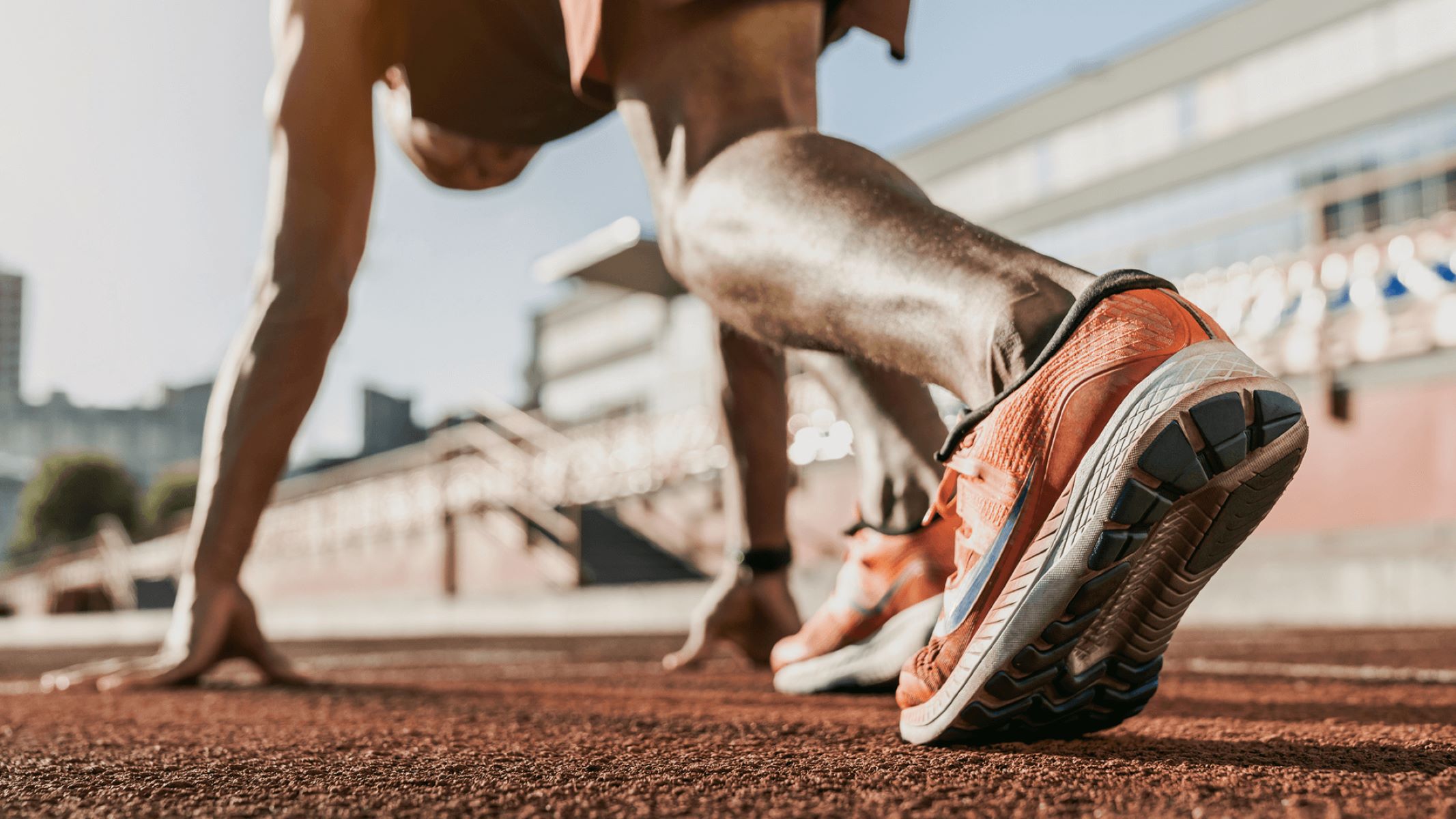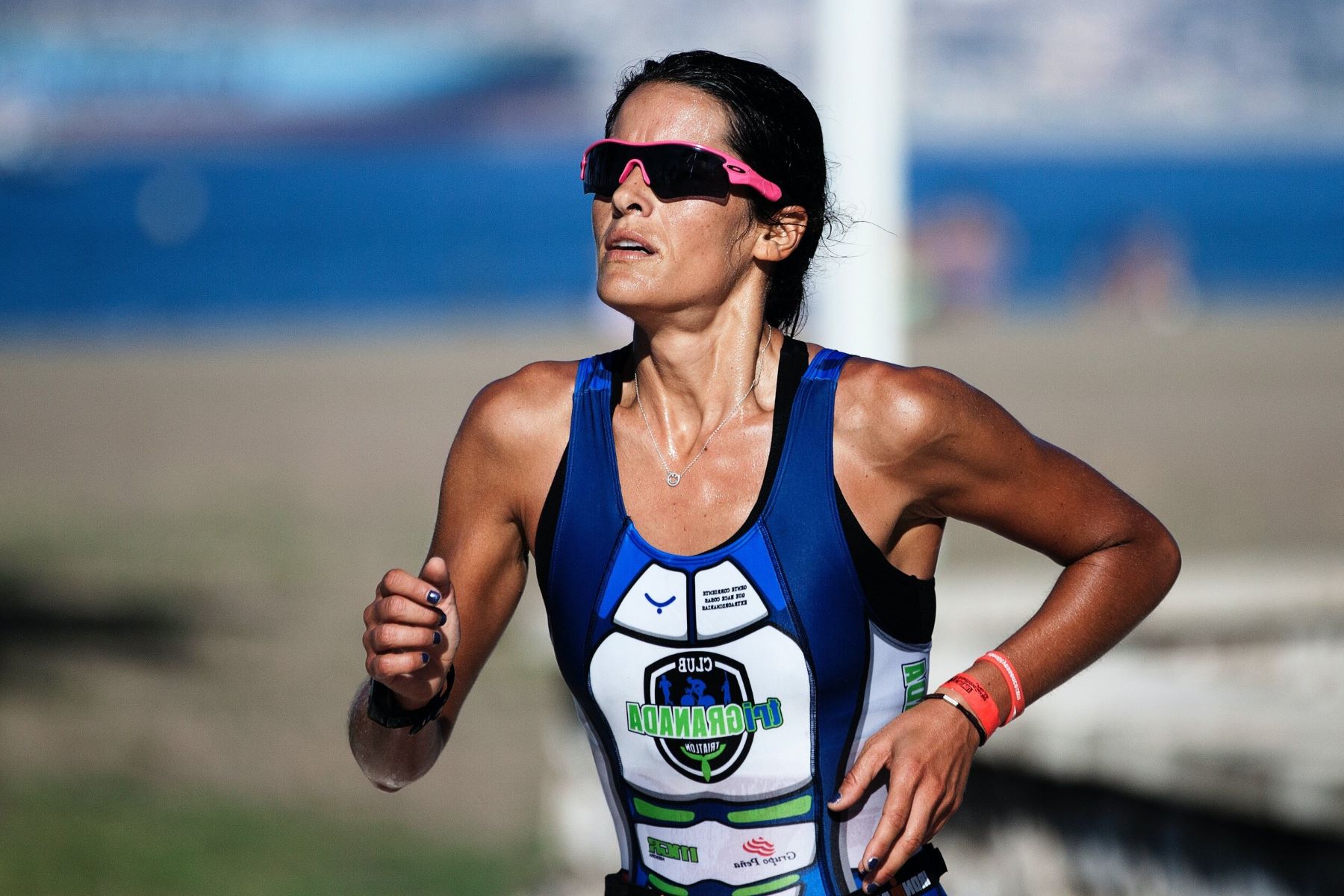Home>Health & Nutrition>The Influence Of DNA On Running Performance


Health & Nutrition
The Influence Of DNA On Running Performance
Published: February 25, 2024
Discover how DNA affects running performance and learn about the impact of genetics on health and nutrition. Explore the connection between genetics and athletic abilities.
(Many of the links in this article redirect to a specific reviewed product. Your purchase of these products through affiliate links helps to generate commission for Therunningadvisor.com, at no extra cost. Learn more)
Table of Contents
Introduction
Running is a fundamental human activity that has evolved from a means of survival to a popular form of exercise and competition. Whether it's sprinting, middle-distance, or long-distance running, the ability to excel in this sport is influenced by a myriad of factors, including training, nutrition, and genetics. In recent years, the role of genetics in athletic performance, particularly in running, has garnered significant attention from researchers, coaches, and athletes alike.
Understanding the influence of genetics on running performance is crucial for optimizing training strategies and achieving peak athletic potential. While training and nutrition play pivotal roles in an athlete's success, genetic predispositions can provide valuable insights into an individual's inherent abilities and limitations. By unraveling the intricate connection between DNA and running ability, we can gain a deeper understanding of how genetic variations impact an athlete's potential for speed, endurance, and overall performance.
As we delve into the fascinating realm of genetics and running, it becomes evident that each individual possesses a unique genetic blueprint that contributes to their athletic prowess. The interplay between genetic factors and environmental influences shapes an athlete's physiological traits, such as muscle fiber composition, oxygen utilization, and energy metabolism, all of which are critical determinants of running performance. Moreover, genetic variations can influence an athlete's susceptibility to injuries, recovery rate, and adaptability to specific training regimens.
In this comprehensive exploration, we will unravel the intricate relationship between DNA and running performance, shedding light on the genetic markers that impact an individual's ability to excel in various running disciplines. Furthermore, we will examine the implications of genetic testing in tailoring personalized training programs, thereby paving the way for a new era of precision training and performance enhancement in the realm of running.
As we embark on this enlightening journey into the realm of genetics and running, we will uncover the profound implications of genetic predispositions on an athlete's potential, ultimately reshaping the way we approach training, coaching, and the pursuit of athletic excellence.
The Role of Genetics in Athletic Performance
Genetics plays a pivotal role in shaping an individual's athletic performance, influencing various physiological attributes that are essential for excelling in sports, including running. The intricate interplay between genetic predispositions and environmental factors contributes to an athlete's inherent abilities, such as muscle fiber composition, oxygen utilization, and energy metabolism. These genetic determinants significantly impact an athlete's potential for speed, endurance, and overall performance in running disciplines.
One of the key genetic factors that influence athletic performance is the composition of muscle fibers. Skeletal muscle is composed of two primary fiber types: slow-twitch (Type I) and fast-twitch (Type II) fibers. The distribution of these fibers varies among individuals and is largely determined by genetic factors. Athletes with a higher proportion of fast-twitch fibers tend to excel in explosive, high-intensity activities such as sprinting, while those with a greater abundance of slow-twitch fibers exhibit enhanced endurance capabilities, making them well-suited for long-distance running.
Furthermore, genetic variations can impact an athlete's oxygen utilization and energy metabolism, both of which are critical for running performance. The body's ability to efficiently utilize oxygen during aerobic activities, known as VO2 max, is influenced by genetic factors. Individuals with a genetically higher VO2 max have a greater capacity for oxygen uptake and utilization, enabling them to sustain higher intensities of exercise for prolonged periods, a crucial advantage in middle to long-distance running events.
In addition to oxygen utilization, genetic predispositions also influence an athlete's energy metabolism, particularly the production and utilization of adenosine triphosphate (ATP), the primary energy currency of the body. Genetic variations in enzymes involved in ATP production and utilization can impact an athlete's energy reserves and the efficiency of energy transfer within muscle cells, ultimately influencing their running performance.
Moreover, genetic factors contribute to an athlete's susceptibility to injuries, recovery rate, and adaptability to specific training regimens. Certain genetic markers are associated with an increased risk of musculoskeletal injuries, while others may influence an individual's ability to recover from intense training sessions. Understanding these genetic predispositions can aid in the development of personalized training programs tailored to an athlete's unique genetic profile, optimizing their performance and reducing the risk of injuries.
In essence, genetics significantly shapes an athlete's physiological traits and predispositions, playing a profound role in determining their potential for success in running and other athletic endeavors. By unraveling the intricate connection between genetics and athletic performance, we can gain valuable insights into the inherent abilities and limitations of athletes, paving the way for a more personalized and effective approach to training and performance optimization.
Understanding DNA and Its Impact on Running Ability
DNA, the fundamental building block of life, holds the key to understanding an individual's inherent abilities and limitations in the realm of running. At the core of DNA's influence on running ability lies the intricate interplay between genetic variations and their impact on physiological traits essential for athletic performance.
The human genome, comprised of approximately 20,000-25,000 genes, serves as a blueprint for an individual's unique genetic makeup. Within this complex genetic code, specific variations, known as single nucleotide polymorphisms (SNPs), can significantly influence an athlete's predisposition to excel in various running disciplines. These genetic variations manifest in diverse ways, shaping an athlete's muscle fiber composition, oxygen utilization, energy metabolism, and susceptibility to injuries, all of which are pivotal determinants of running ability.
One of the key aspects of DNA's impact on running ability is its influence on muscle fiber composition. Genetic variations play a crucial role in determining an individual's distribution of slow-twitch (Type I) and fast-twitch (Type II) muscle fibers. Athletes with a higher proportion of fast-twitch fibers exhibit enhanced explosiveness and power, making them well-suited for sprinting and other high-intensity running activities. Conversely, individuals with a greater abundance of slow-twitch fibers demonstrate superior endurance capabilities, positioning them as strong contenders in long-distance running events.
Moreover, DNA exerts a profound influence on an athlete's oxygen utilization, a critical factor in running performance. Genetic variations can impact an individual's VO2 max, the maximum rate of oxygen consumption during intense exercise. Athletes with genetically higher VO2 max levels possess a superior capacity for oxygen uptake and utilization, enabling them to sustain prolonged, high-intensity efforts with enhanced efficiency, a significant advantage in middle to long-distance running events.
In addition to oxygen utilization, genetic predispositions also shape an athlete's energy metabolism, influencing the production and utilization of ATP, the primary energy currency of the body. Genetic variations in enzymes involved in ATP production and utilization can impact an athlete's energy reserves and the efficiency of energy transfer within muscle cells, ultimately influencing their running performance.
Furthermore, DNA influences an athlete's susceptibility to injuries, recovery rate, and adaptability to specific training regimens. Certain genetic markers are associated with an increased risk of musculoskeletal injuries, while others may influence an individual's ability to recover from intense training sessions. Understanding these genetic predispositions can inform the development of personalized training programs tailored to an athlete's unique genetic profile, optimizing their performance and reducing the risk of injuries.
In essence, DNA holds the key to unraveling an athlete's inherent abilities and limitations in the realm of running. By comprehensively understanding the impact of genetic variations on muscle fiber composition, oxygen utilization, energy metabolism, and injury susceptibility, we can gain valuable insights into an individual's genetic predispositions, ultimately shaping a more personalized and effective approach to training and performance optimization in the world of running.
Genetic Markers and Running Performance
Genetic markers play a pivotal role in shaping an athlete's predisposition to excel in various running disciplines. These markers, often in the form of single nucleotide polymorphisms (SNPs), are specific variations within the genetic code that can significantly influence an individual's running performance. By unraveling the intricate connection between genetic markers and running ability, we can gain valuable insights into an athlete's inherent physiological traits and predispositions, ultimately shaping a more personalized and effective approach to training and performance optimization in the realm of running.
One of the key genetic markers that impact running performance is the ACTN3 gene, which codes for a protein found in fast-twitch muscle fibers. A common variation of this gene, known as the R577X polymorphism, has been associated with sprint and power performance. Athletes carrying the "RR" genotype of the ACTN3 gene tend to exhibit enhanced sprinting abilities, making them well-suited for explosive, high-intensity running activities. Conversely, individuals with the "XX" genotype may demonstrate a predisposition towards endurance-based activities, aligning with the abundance of slow-twitch muscle fibers.
Another significant genetic marker linked to running performance is the ACE gene, which encodes an enzyme involved in the regulation of blood pressure and cardiovascular function. The presence of specific variations within the ACE gene, such as the insertion (I) or deletion (D) polymorphisms, has been associated with differences in endurance and power-related athletic performance. Athletes carrying the "II" genotype of the ACE gene may exhibit enhanced endurance capabilities, potentially benefiting their performance in long-distance running events, while those with the "DD" genotype might demonstrate advantages in power and sprint-based activities.
Furthermore, genetic variations within the NRF2 and VEGF genes have been implicated in influencing an athlete's oxygen utilization and vascular function, both of which are critical for running performance. The NRF2 gene plays a role in antioxidant defense and cellular protection, potentially impacting an athlete's ability to cope with oxidative stress during intense exercise. On the other hand, variations within the VEGF gene, which is involved in the regulation of blood vessel formation, can influence an athlete's vascular function and oxygen delivery to working muscles, thereby impacting their endurance and performance in aerobic activities.
In essence, genetic markers serve as invaluable indicators of an athlete's predisposition to excel in specific running disciplines, shedding light on their inherent physiological traits and potential for success. By understanding the implications of genetic variations within key genes such as ACTN3, ACE, NRF2, and VEGF, coaches and sports scientists can tailor training programs to align with an athlete's genetic profile, optimizing their performance and maximizing their competitive edge in the dynamic world of running.
Training and Genetics: How DNA Influences Training Response
The intricate relationship between genetics and training response is a pivotal aspect of athletic development, particularly in the realm of running. DNA exerts a profound influence on an athlete's physiological adaptations to training stimuli, shaping their responsiveness to specific training regimens and ultimately influencing their performance outcomes.
Genetic variations play a significant role in an athlete's training response, impacting their ability to adapt to different training modalities and optimize their athletic potential. One of the key genetic factors that influences training response is the ACTN3 gene, which has been associated with skeletal muscle performance and adaptation. Athletes carrying specific variations of the ACTN3 gene may exhibit differential responses to strength and power-based training, thereby influencing their capacity to enhance explosive performance in sprinting and other high-intensity running activities.
Moreover, genetic predispositions can impact an athlete's capacity for aerobic training adaptations, particularly in relation to oxygen utilization and endurance performance. Variations within genes such as VEGF and NRF2, which are involved in vascular function and antioxidant defense, respectively, can influence an athlete's responsiveness to aerobic training stimuli. Understanding an athlete's genetic profile in relation to these key genes can provide valuable insights into their potential for aerobic adaptations, guiding the development of tailored training programs aimed at optimizing their endurance capabilities and overall running performance.
Furthermore, genetic variations within the ACE gene have been linked to an athlete's potential for cardiovascular adaptations in response to endurance training. Athletes with specific ACE gene variations may exhibit differences in their capacity to enhance cardiovascular function and endurance performance through targeted training interventions. By considering an athlete's genetic predispositions in relation to the ACE gene, coaches and sports scientists can tailor endurance training protocols to align with an individual's genetic profile, thereby maximizing their training response and performance outcomes in long-distance running events.
In essence, DNA exerts a profound influence on an athlete's training response, shaping their capacity to adapt to various training stimuli and optimize their athletic potential in the realm of running. By comprehensively understanding an athlete's genetic predispositions in relation to key genes such as ACTN3, VEGF, NRF2, and ACE, coaches and sports scientists can develop personalized training programs that leverage an individual's genetic profile, ultimately enhancing their training response and performance outcomes in the dynamic world of running.
The Future of Genetic Testing in Running Performance
The future of genetic testing in running performance holds immense promise for revolutionizing the way athletes, coaches, and sports scientists approach training and performance optimization. As advancements in genetic research continue to unveil the intricate connections between DNA and athletic prowess, the integration of genetic testing into the realm of running has the potential to reshape the landscape of sports performance enhancement.
Genetic testing offers a window into an athlete's unique genetic blueprint, providing valuable insights into their inherent physiological traits, predispositions, and potential for success in various running disciplines. By analyzing specific genetic markers associated with muscle fiber composition, oxygen utilization, energy metabolism, and injury susceptibility, genetic testing can offer a comprehensive understanding of an athlete's genetic profile, thereby guiding the development of personalized training programs tailored to their individual genetic predispositions.
Furthermore, genetic testing holds the key to identifying an athlete's responsiveness to specific training stimuli, enabling coaches and sports scientists to tailor training regimens that align with an individual's genetic profile. By understanding an athlete's genetic predispositions in relation to key genes such as ACTN3, ACE, VEGF, and NRF2, training interventions can be optimized to enhance an athlete's training response and performance outcomes, ultimately maximizing their competitive edge in the dynamic world of running.
Moreover, the integration of genetic testing into talent identification and development programs can revolutionize the way athletes are identified and nurtured. By leveraging genetic insights to identify individuals with inherent predispositions for specific running disciplines, talent identification programs can be refined to unearth and cultivate athletic potential more effectively, thereby shaping the future generation of elite runners.
As genetic testing technologies continue to evolve, the accessibility and affordability of genetic testing for athletes are expected to increase, paving the way for widespread integration into training and coaching practices. With the potential for portable and rapid genetic testing solutions, athletes can benefit from real-time genetic insights, allowing for dynamic adjustments to training programs based on their genetic responses and adaptations.
In essence, the future of genetic testing in running performance holds the promise of a more personalized, precise, and effective approach to training and performance optimization. By harnessing the power of genetic insights, athletes can unlock their full potential, coaches can tailor training programs with unprecedented precision, and the realm of running can witness a new era of athletic excellence driven by the profound implications of genetic testing.
Conclusion
In conclusion, the influence of genetics on running performance is a multifaceted and profound aspect of athletic development. The intricate interplay between an athlete's genetic predispositions and their physiological traits significantly shapes their inherent abilities and limitations in various running disciplines. From muscle fiber composition and oxygen utilization to energy metabolism and training response, genetic variations exert a profound influence on an athlete's potential for speed, endurance, and overall performance.
As we unravel the complex web of genetic markers and their impact on running ability, it becomes evident that genetic testing holds immense promise for revolutionizing the way athletes, coaches, and sports scientists approach training and performance optimization. By gaining a comprehensive understanding of an athlete's genetic profile, coaches can develop personalized training programs tailored to align with an individual's genetic predispositions, thereby optimizing their performance and maximizing their competitive edge in the dynamic world of running.
Furthermore, the integration of genetic testing into talent identification and development programs has the potential to refine the process of identifying and nurturing athletic potential. By leveraging genetic insights to identify individuals with inherent predispositions for specific running disciplines, talent identification programs can be refined to unearth and cultivate athletic potential more effectively, shaping the future generation of elite runners.
The future of genetic testing in running performance holds the promise of a more personalized, precise, and effective approach to training and performance optimization. As genetic testing technologies continue to evolve, the accessibility and affordability of genetic testing for athletes are expected to increase, paving the way for widespread integration into training and coaching practices. With the potential for portable and rapid genetic testing solutions, athletes can benefit from real-time genetic insights, allowing for dynamic adjustments to training programs based on their genetic responses and adaptations.
In essence, the profound implications of genetic testing in the realm of running have the potential to reshape the landscape of sports performance enhancement, unlocking new frontiers of athletic excellence driven by the power of genetic insights. As we continue to unravel the intricate connections between DNA and athletic prowess, the future of running holds the promise of a new era of precision training, performance optimization, and the realization of athletic potential to unprecedented levels.















